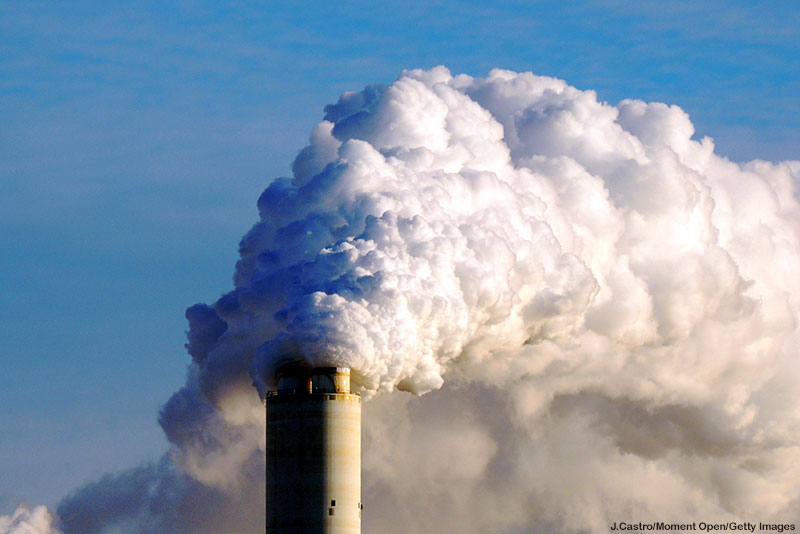
Update on Iran Nuclear Deal
Last April, btw brought you news of the hotly-debated Iran nuclear deal. Later, we asked you for your opinion on the matter. Formally called the Joint Comprehensive Plan of Action (JCPOA), the six-county agreement was signed on July 14, 2015. Under the agreement, Iran agreed to reduce its stockpile of low-enriched uranium, reduce the number of centrifuges (machines used to process uranium in making a nuclear bomb), and the re-engineer existing power plants away from producing plutonium. In return, countries with active sanctions against Iran would begin to lift them. These include the unfreezing of $100 billion in frozen assets and the country’s return to the oil market.
The most recent significant step in the disarmament process took place at the end of the year. Iran successfully shipped 11 metric tons of low-enriched uranium to Russia. However, Congress recently approved new travel restrictions on those entering Iran, which has upset Iranian leaders who see the action as new sanctions. In addition, 36 Republican senators have called on the president to not go through with lifting sanctions on Iran.
What Do You Think? With a divided government, how likely do you think it is that the other steps of the nuclear deal will go through? Support your answer with at least two reputable sources.
New Delhi Anti-Pollution Measures
The air surrounding us is made up of two main gases—nitrogen and oxygen—with the remaining amount made up of very small quantities of other substances. Some of these are natural (residuals from fires and gases released from rocks inside the earth). Others are more harmful, like exhaust fumes from automobiles and the burning residue of fossil fuels still common in most power plants. Small quantities of these pollutants in the air are relatively harmless; at higher concentrations, however, the effect can be quite dangerous.

India is the second-most populated country in the world. Air pollution in its larger cities is a big problem, with record-high levels of contaminates. Last year, the World Health Organization named India’s capital city–New Delhi–the world’s most polluted city. The WHO measures the number of “particulate matter” (referred to as PM 2.5) and considers “20” to be a standard. New Delhi’s level at the end of the year was 207. In response, the city government announced a plan to reduce the levels of air pollution by restricting the number of cars that can be on the road. Private cars will only be allowed on the roads on alternate days between January 1 and 15, indicated by the even or odd number on their license plate.
Dig Deeper Do some research and find out if New Delhi has seen an improvement in its PM2.5 level. Also note any challenges the city faces in enforcing the new law.
Kennedy Center Honors Recap
It seems like new award shows are cropping up all of the time, giving the public exposure to its heroes in the arts. The Kennedy Center Honors are not new, but production rights allow it to be broadcast on network television, where it is reaching a wider audience. Established in 1977, the Honors recognize individuals or groups who have made significant contributions to American culture through music, theater, opera, dance, motion pictures and television. Past recipients include singers Ella Fitzgerald, Frank Sinatra, Bob Dylan and Stevie Wonder; playwrights Tennessee Williams and Arthur Miller; dancers Fred Astaire and Martha Graham; opera singers Marian Anderson and Beverly Sills; and comedians Lucille Ball, Mel Brooks and David Letterman.
The honorees, chosen by a special committee, participate in a weekend-long ceremony that culminates in the televised gala performance where other artists introduce each recipient and perform something that represents each artist’s life work. The 2016 honorees were:
- Rita Moreno – Puerto Rican actress and EGOT (Emmy, Grammy, Oscar, Tony) recipient, perhaps best known for her role as Anita in the 1961 film West Side Story.
- George Lucas – American filmmaker and producer. Most notably, the creator of Star Wars and the cutting-edge, special-effects studio, Lucasfilm.
- Cicely Tyson – African American actress. She has received several nominations and awards for roles throughout the past five decades and continues to work at age 91.
- Seiji Ozawa – Japanese classical music conductor who has achieved international success.
- Carole King – Brooklyn-born singer/songwriter. King went from writing hits for other artists to becoming a star in her own right. Her 1971 album Tapestry is one of the best-selling of all time.
What Do You Think? Think of a contemporary artist whom you think is likely to receive Kennedy Center Award in the future. What qualities does he or her possess to make you think so? Explain your answer.
Debate Over Cellphone Dangers
With every major technological development comes an inevitable concern about the potential risks to our health. This is not a new debate, as the advent of the printing press in the mid-1400s had many questioning its long-term effects. Radio waves, telephone lines, television signals and WiFi have all garnered considerable concern. One of the most recent is the link between cellphone technology and cancer. No definitive conclusion has ever been reached.
In 2014, the U.S. Centers for Disease Control (CDC) published frequently-asked questions regarding the risk of radiation in using cellphones. After explicitly recommending “caution in cellphone use,” the language was removed from the agency’s Web site shortly thereafter, leaving many to question which is correct. Currently, the CDC website posts a sidebar disclaimer (see the blue column on the right side of the previous link), stating that the organization did not reverse its position, but merely clarified it. The New York Times recently reportedly uncovered internal government documents that suggest that there is considerable disagreement among scientists and other experts on the topic.
